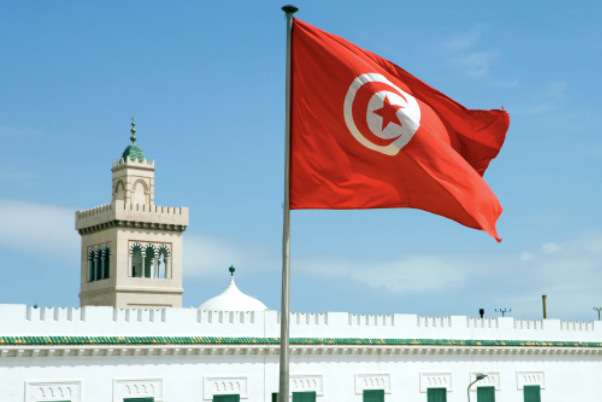Najla Bouden Ramadhane has been named Tunisia’s – and the Arab world’s – first female Prime Minister. An academic with a background in engineering and experience with the World Bank, Bouden has no background in politics but was named to the post by current President Kais Saied after he dismissed former Prime Minister Hichem Mechichi and suspended parliament – a move that has garnered much shock and controversy. Women have rarely held senior political roles in Arab countries, much less a position of Prime Minister. Given the task of forming the new government, Bouden’s cabinet includes twenty-five members including nine women aside from the Prime Minister, marking hope for a social change in women’s rights in Tunisia as well as for the Arab world.
Saied’s appointment has been met with varying reactions, with some praising this as a new milestone in Arab politics. “It is a positive sign that a woman will lead the government. I hope she will immediately start saving the country from the spectre of bankruptcy. She should quickly look at the problem of Tunisians,” said Amin Ben Salem, a banker in Tunisia. Another Tunisian, nurse Amina Ben Hammou expressed her support at the news stating “I am optimistic about a woman being prime minister, so let’s try it”. On a more international scale, the United States also expressed their approval with the US State Department spokesperson Ned Price stating that there should be “a rapid return to constitutional order.”
However, although Bouden’s appointment is breaking down barriers and marks a tremendous advance for women’s rights in the Middle East, the newly appointed Prime Minister will have fewer powers than her predecessors. Saied announced on July 30th that he would assume executive authority, suspending most of the constitution in a near-total seizure of power, granting him far more power than previous Prime Ministers. As per Saied’s decree, Bouden will not have the executive control that previous Prime Ministers wielded; instead, executive, legislative and judicial powers will lie with Saied.
To do that, Saied has claimed he invoked an emergency article – article 80 – of Tunisia’s constitution which allows for the president to take “exceptional measures in the event of imminent danger”, yet the legality of his actions are still debated upon and remains uncertain. He has since justified his actions as temporary measures with no definite endpoint, to tackle the slew of violent protests that took place in multiple Tunisian cities over the summer in response to the government’s handling of the COVID-19 pandemic and the economic crisis hitting the country.
Saied’s rivals have declared his actions an “attack on democracy, accusing him of staging a ‘coup’. Many have expressed resistance towards the new Prime Minister, including Samir Dilou – a former government minister who resigned from Ennahda (Tunisia’s largest party). Dilou did not recognize the new Prime Minister and called Saied’s appointment “illegal” as it was based on Saied’s presidential decrees following his power grab. He stated: “the pride that Tunisia has always carried when it comes to empowering women and equal opportunities remains tainted by the bitterness of being the head of the government of a country that is undergoing a coup against constitutional legitimacy.”
Co-founder and intellectual leader of the Ennahda Party: Rached Ghannouchi also disapproved of Saied’s action, stating that the president did not consult him or the prime minister which is a requirement of Article 80 and therefore it is a coup and an “assault on democracy”. Former Prime Minister Mechichi however, has remained silent since his dismissal.
Certain women’s organizations and activists have also expressed their disapproval in light of Bouden’s appointment accusing Saied of “pinkwashing” his politics to strengthen relations with foreign donor states, like the United States, in order to secure funding that Tunisia is desperately seeking. Fida Hammami, the Middle East and North Africa advocacy coordinator at the Women’s International League for Peace and Freedom made clear her stance on the appointment by writing: “Kais Saied tokenizing a woman in this particular political context, setting her up to fail and giving her a void mandate is not a symbolic gesture, it’s a farce,”.
Overall, Saied’s actions have been met with mixed reactions across the globe. Some hope that Bouden’s appointment symbolizes a great milestone for women’s rights in the Arab world and others remain skeptical, believing it to be simply a front for Saied to assume and maintain executive power. However, one thing is clear, with Tunisia in the middle of an economic and political crisis, Bouden has much work to take on with very limited powers.
Edited by Yu Xuan Zhao
Penni Tenzin is in her second year at McGill University, pursuing a joint honours in International Development and Political Science with a minor in Social Entrepreneurship. This is her second year as a staff writer for the Catalyst and she could’t be happier!

